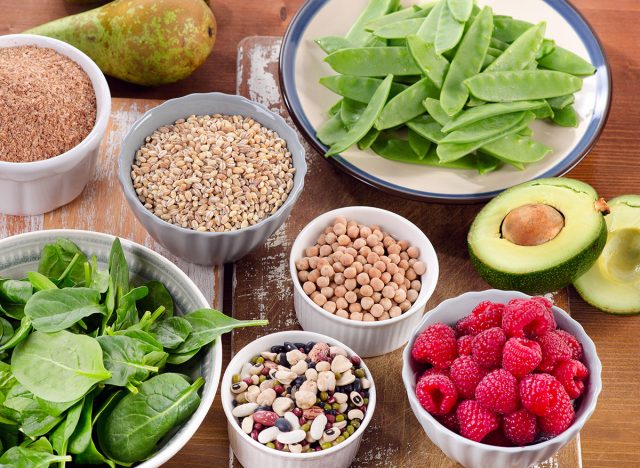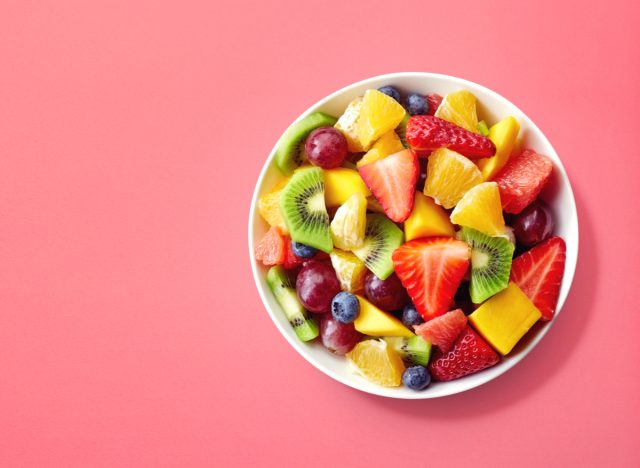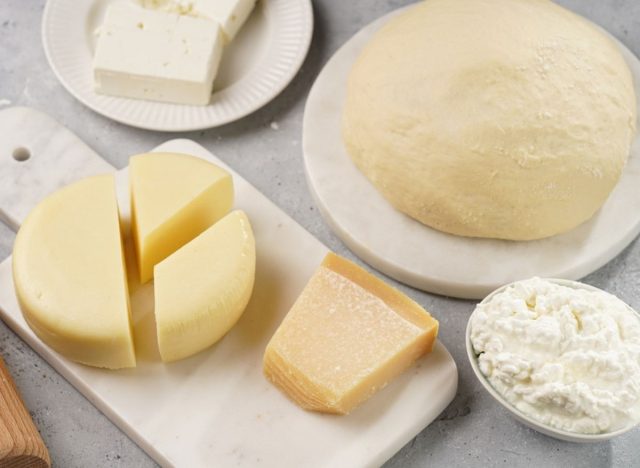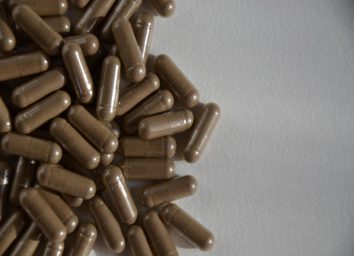5 Eating Habits Making You Constipated, Say Dietitians

Let’s face it—being constipated is no fun. Dealing with irregular bowel movements like this can lead to bloating, cramps, and overall general stomach pain. In other words, it can quickly derail your day.
Constipation occurs when your stool is moving too slowly through your digestive tract, which can be caused by a number of factors related to your eating or drinking habits.
Continue reading to learn more about the eating habits and food that can make you constipated. And for more healthy eating tips, check out Best Breakfast Habits for a Healthy Gut.
You’re not eating enough fiber.

If you’re feeling constipated, one of the first things you can ask yourself is “am I getting enough fiber in my diet?”
“Fiber is found in fruit, veggies, whole grains, nuts, seeds, beans, legumes, and lentils,” says Amy Goodson, MS, RD, CSSD, LD, author of The Sports Nutrition Playbook, and a member of our medical expert board. “Fiber doesn’t digest but instead works as a bulking agent to help ‘push stuff through’ your gut, which helps with regular bowel movements. Because of this, not consuming enough fiber can lead to constipation. The goal is to eat 25 to 38 grams of fiber per day, but as you increase fiber intake, you need to increase your water intake as well.”
You’re not drinking enough water.

Along with getting plenty of fiber, making sure you’re drinking plenty of water throughout the day is also going to be crucial for keeping your digestion regular.
“Drinking adequate water is necessary to help stools stay soft. If you are dehydrated, this can magnify constipation,” says Goodson. “The key is to drink fluids regularly. A rule of thumb is to take your weight in pounds and divide that in half and drink that many ounces as a base throughout the day. Then add 5 to 10 ounces of water for every 15 to 20 minutes of exercise.”
You are peeling your fruit.

This one might come as a surprise to some people, but a lot of the nutrients found in fruit are located in the skin or peel!
“Yes, fruit is a positive addition to your diet, regardless of whether you are peeling it or not,” says medical board expert Lauren Manaker, MS, RDN, author of The First Time Mom’s Pregnancy Cookbook and Fueling Male Fertility. “But for many fruits, the fiber is found in the peel. And since fiber can help prevent constipation, keeping the skin on your pears, apples, and peaches can help you stay regular.”
You are eating large amounts of cheese.

Unfortunately, eating too much cheese or dairy can cause some people to have constipation.
“Sure, cheese is one of the most delicious foods out there. But it can be quite binding, and lead to constipation,” says Manaker.
If you’re a cheese lover (who isn’t?) try incorporating some fiber-heavy foods into your meal or snack when you eat cheese, such as a salad or whole grains.
You’re drinking too much alcohol or caffeine.

While alcohol and coffee don’t directly lead to constipation, one dietitian warns that the way these beverages interact with your body may lead to constipation for some.
“Alcoholic beverages and caffeinated drinks such as coffee, tea, and colas have a dehydrating effect on the body, which can contribute to constipation by making it more difficult for waste material to move through the digestive tract,” says Janet Coleman, RD with The Consumer Mag.









